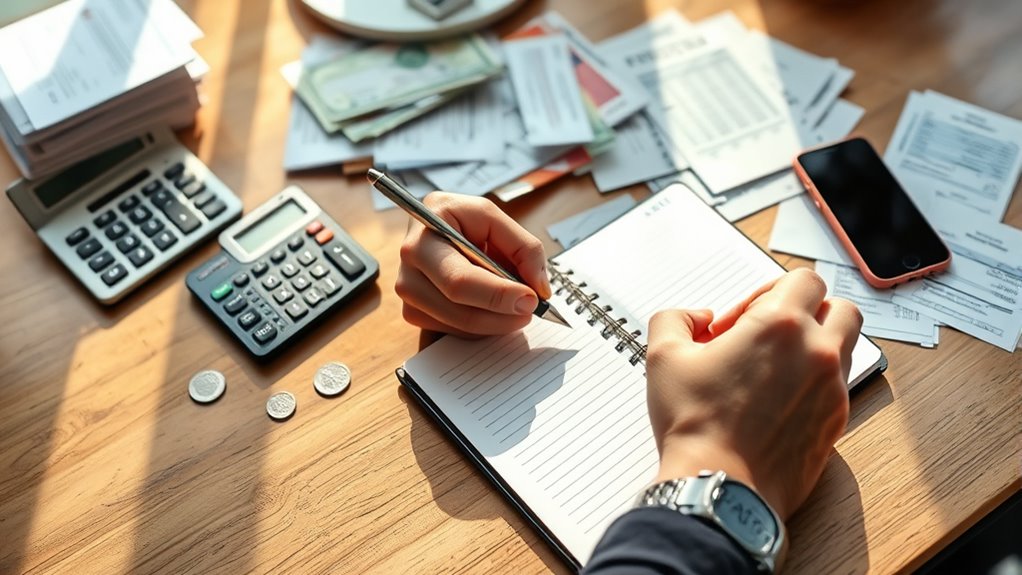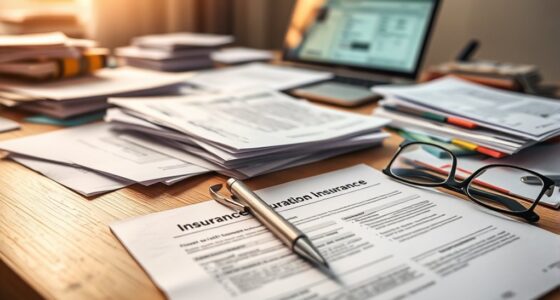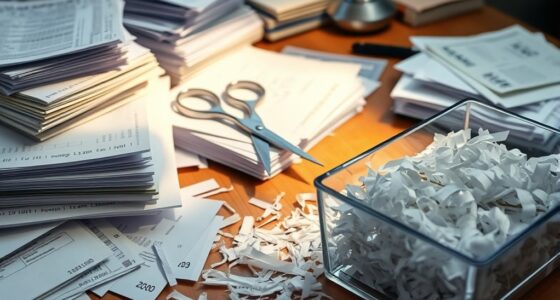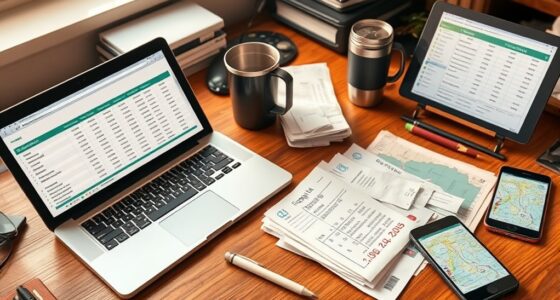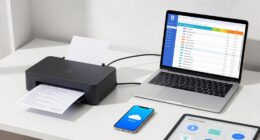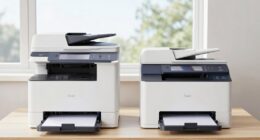Tracking your everyday expenses with receipts and a solid budgeting plan helps you stay in control of your finances. By keeping receipts organized and regularly recording totals, you can easily categorize spending and spot areas where you might overspend. Reconciling receipts with bank statements guarantees accuracy while improving cash flow management. Staying consistent with this process boosts your confidence and supports your financial goals; keep going to discover even more tips for smarter money management.
Key Takeaways
- Track all expenses regularly using receipts to monitor spending habits and ensure accurate budgeting.
- Organize receipts by categories like groceries, transportation, and bills for easier expense management.
- Reconcile receipts with bank statements to identify discrepancies and maintain precise cash flow records.
- Input weekly totals from receipts into budgeting apps or spreadsheets for ongoing expense tracking.
- Review receipts periodically to identify overspending areas and adjust your budget accordingly.
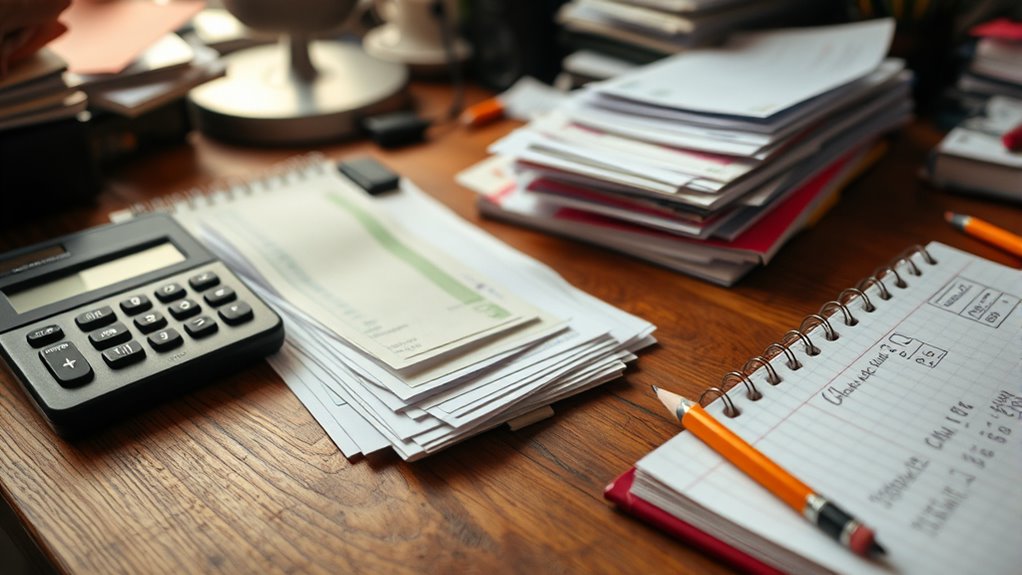
Managing your finances effectively begins with understanding budgeting and receipts. When you’re tracking your everyday expenses, it’s essential to keep a close eye on your cash flow. Your cash flow reflects how money moves in and out of your accounts, and managing it well ensures you can cover your needs without stress. To do that, you need to categorize your expenses accurately. Breaking down your spending into expense categories—such as groceries, transportation, entertainment, and bills—helps you see where your money is going. This clarity allows you to identify areas where you might be overspending and adjust accordingly.
Using receipts is a straightforward way to keep track of your expenses. Every time you make a purchase, whether it’s a small coffee or a big grocery run, grab the receipt. Don’t rely solely on memory; receipts serve as proof and help you record exact amounts. When you sit down to review your finances, receipts give you a detailed snapshot of your recent spending, making your budget more accurate. Plus, they’re useful for catching errors or fraudulent charges that might otherwise go unnoticed.
You want to develop a habit of organizing your receipts regularly. Consider setting up a dedicated folder or envelope for different expense categories. As you receive receipts, file them accordingly, and at the end of each week, spend a few minutes inputting the totals into a budgeting app or spreadsheet. This process helps you stay aware of your cash flow and how your spending aligns with your financial goals. It also makes it easier to prepare for upcoming expenses or to adjust your budget if you notice patterns of overspending.
Another tip is to compare your receipts with your bank statements. Sometimes, transactions may not match exactly, especially if there are pending charges or fees. By regularly reconciling these records, you ensure your tracking is precise. Over time, this practice reveals your true cash flow—how much money you have left after all expenses—so you can plan better for savings or debt repayment.
In addition, receipts can serve as a record for tax deductions or reimbursements. Keeping them organized in expense categories makes it simpler when tax season comes around or if you need to justify expenses for work or insurance claims. To ensure your tracking is comprehensive, be aware of cookie policies that may affect how your financial data is stored or tracked online. Overall, managing your receipts and understanding your cash flow empower you to stay in control of your finances, ensuring you meet your financial goals and avoid unnecessary debt. The more diligent you are about tracking your expenses, the clearer your financial picture becomes, giving you confidence and peace of mind.
Frequently Asked Questions
How Often Should I Review My Budget?
You should review your budget at least monthly to stay on track with your expenses and income. A monthly review helps you catch overspending early and adjust your habits. Additionally, do a quarterly assessment to evaluate your financial goals and make bigger adjustments if needed. Regular reviews keep you aware of your finances, ensuring you maintain control and reach your financial objectives efficiently.
What Are the Best Apps for Expense Tracking?
When it comes to expense tracking apps, you want ones that truly keep things in sync, so you’re not chasing your tail. Good options include Mint, YNAB, and PocketGuard—they automatically categorize expenses and sync across devices, making life easier. These apps help you stay on top of your budget, monitor expense categories, and give you a clear picture of your spending habits, so you’re always in the know.
How Do I Handle Unexpected Expenses?
When unexpected expenses hit, you should rely on your emergency fund to cover them without stress. Keep your expenses categorized in your budget app, so you quickly identify areas to cut if needed. Regularly contribute to your emergency fund, aiming for three to six months’ worth of expenses. By staying organized and prepared, you’ll handle surprises smoothly and avoid financial strain.
Can Digital Receipts Be More Reliable Than Paper Ones?
You can trust digital receipts more than paper ones because they offer better digital verification and easier receipt storage. While paper receipts can fade or get lost, digital versions stay intact and are easier to organize. Think of it as killing two birds with one stone: you get reliable proof of purchase and a clutter-free way to track expenses. Digital receipts are more dependable for future references and potential audits.
How Do I Set Realistic Spending Limits?
To set realistic spending limits, start by analyzing your cash flow management and understanding your income and expenses. Identify essential costs and savings goals, then allocate specific amounts for each category. Be honest about your spending habits, and adjust limits as needed to stay within your means. Regularly review your progress, and don’t be afraid to modify limits to better align with your financial goals and lifestyle.
Conclusion
By mastering budgeting and diligently organizing receipts, you’ll open control over your finances that rivals the most intricate of master plans. Every expense becomes a stepping stone toward financial clarity and freedom. Don’t underestimate the power of these small habits—they can transform your financial life faster than you ever imagined. Stay committed, and you’ll find yourself on a path so clear and confident, it’s almost like having a financial crystal ball guiding every decision.
